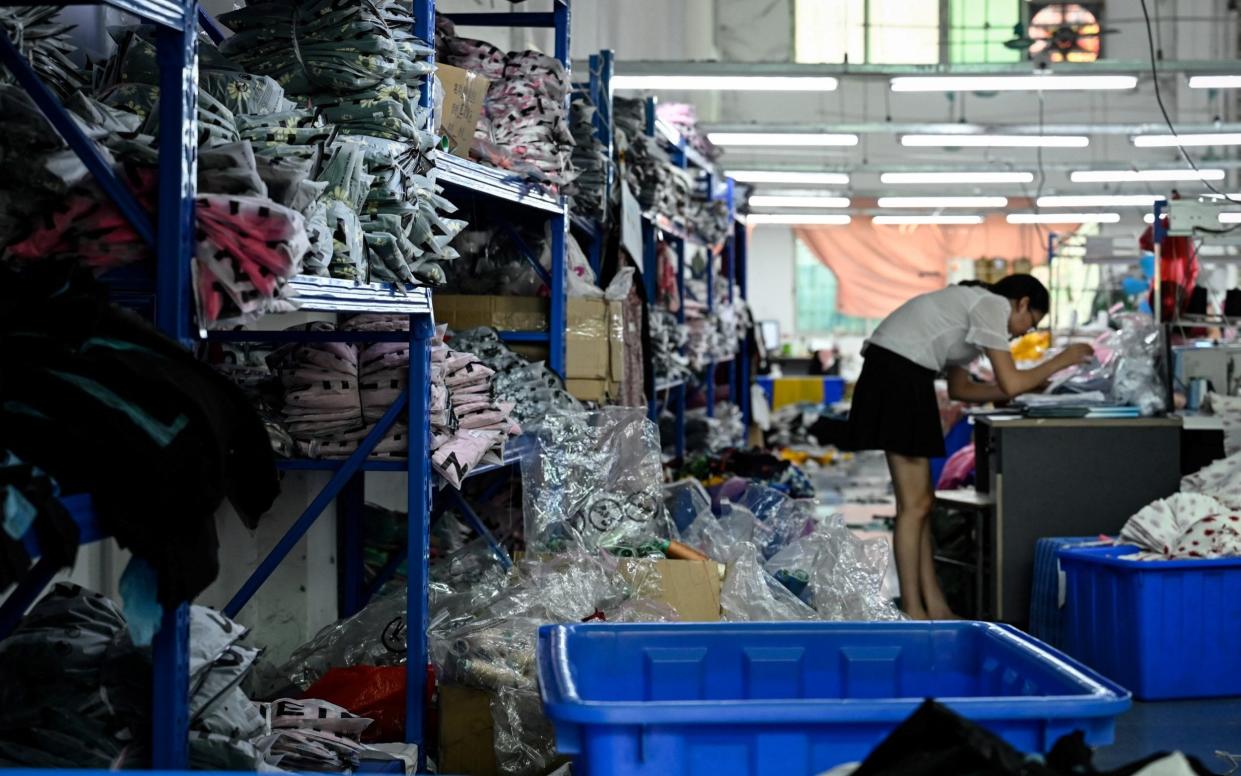London’s stock market ‘coup’ is waving a big red flag we cannot ignore

There is something inherently distasteful about fast-fashion and the throwaway culture that it has created. It’s not just the dirt-cheap prices that promote a short shelf-life for the clothes our children are walking around in. The aggressive social media campaigns that have quickly become the industry’s primary marketing tool also encourage teens to embrace waste.
Open TikTok or Instagram and an entire generation of young people are being taught implicitly that it’s fine to wear something for a few weeks then chuck it away and move on to the next trend – because it only costs a couple of quid. Worse perhaps, a legion of vacuous Z-list celebrities are getting rich by bombarding impressionable shoppers with this toxic message.
Many of those who allow themselves to be sucked in are blissfully unaware of its dirty secret, which is that it is virtually impossible to make a £3 T-shirt without someone or something paying a high price elsewhere – whether it’s the resulting environmental impact or the often harsh conditions found in the factories where the clothes are produced. Others are simply happy to ignore it in the endless pursuit of being hip and cool.
Ultra-fast fashion then, of the sort pioneered by China’s Shein, is simply a more extreme version of this broken model. So the idea that the company’s decision to shun New York and seek a stock market float in London is a major coup for Britain is nonsense. The Square Mile may be in need of a serious boost but surely it’s not yet that desperate?
It’s a narrative that an incoming Labour government should reject out of hand, especially if the party’s attempts to portray itself as being on the side of workers is to count for anything.
It was only a couple of weeks ago that Sir Keir Starmer was up in Glasgow telling people about his so-called six steps for change, one of which is to make work pay with a “new deal for working people”.
It represents “the greatest levelling up for workers’ rights in a generation”: no more zero-hours contracts or “fire and rehire” policies, plus “a genuine” living wage because “dignity and respect at work are essential for economic growth”, the Labour leader promised.
In which case, Shein’s turbo-charged fast fashion juggernaut looks completely out of step with Starmer’s vision of what modern Britain should stand for. Obviously, the Government doesn’t control the stock market directly but it certainly has great influence over who we court as a country and the message we are trying to project to the rest of the world.
There is little to like about Shein. An investigation by Swiss campaign group Public Eye in 2021 found evidence of staff subjected to 75-hour weeks in Shein’s Chinese factories. Some employees were working three shifts a day and only getting one day off a week, often in unsafe conditions, it claimed. The company promised to conduct a “targeted investigation” into the allegations.
Then, last autumn, a Channel 4 documentary reported that some Shein factory workers earned an average of £19 for a typical 18-hour shift, produced hundreds of items a day and couldn’t go home until they’d finished. In some instances, wages were withheld and docked. In response, Shein vowed to invest $15m (£11.8m) to improve standards.
Meanwhile, its consumption of virgin polyester and oil release the same amount of CO2 as approximately 180 coal-fired power plants every year, according to Synthetics Anonymous 2.0, a report published on fashion sustainability.
Shein may feel it is being unfairly targeted when many of the claims it has faced have been levelled at rivals including British chain Boohoo. Yet, the difference is that because it is British, a powerful combination of shareholders, MPs and NGOs have been able to apply intense pressure on the company to improve standards.
Any suggestion that a Chinese retailer would be subjected to the same lobbying from Beijing, a regime with a terrible human rights record, or that Western campaigners would have the same influence over Shein’s practices, is plain silly.
Shein has gone to great lengths to convince the world that it isn’t a Chinese company, including moving its headquarters to Singapore in 2021. Yet a change of domicile doesn’t change the facts. This is an organisation founded in Nanjing, China, by Chris Xu, a Chinese entrepreneur, and relies on thousands of Chinese third-party manufacturers for its goods. But the real giveaway is surely the news that Shein needs approval from Beijing regulators to list its shares in London.
Meanwhile, Shein’s cheerleaders seem to be wilfully overlooking another important point, which is that the reason management wants to come to the UK is not because London is somehow more attractive as a place to raise capital but because of the questions and criticism that it has faced in America. If a company finds real scrutiny so uncomfortable, isn’t that a big red flag in itself?
It is emblematic of how desperate London’s plight is that the red carpet is being rolled out for Shein. If Labour’s promise to put “decency and honesty” at the heart of the next government means anything, then it should make it clear that a company with its track record isn’t welcome here.


